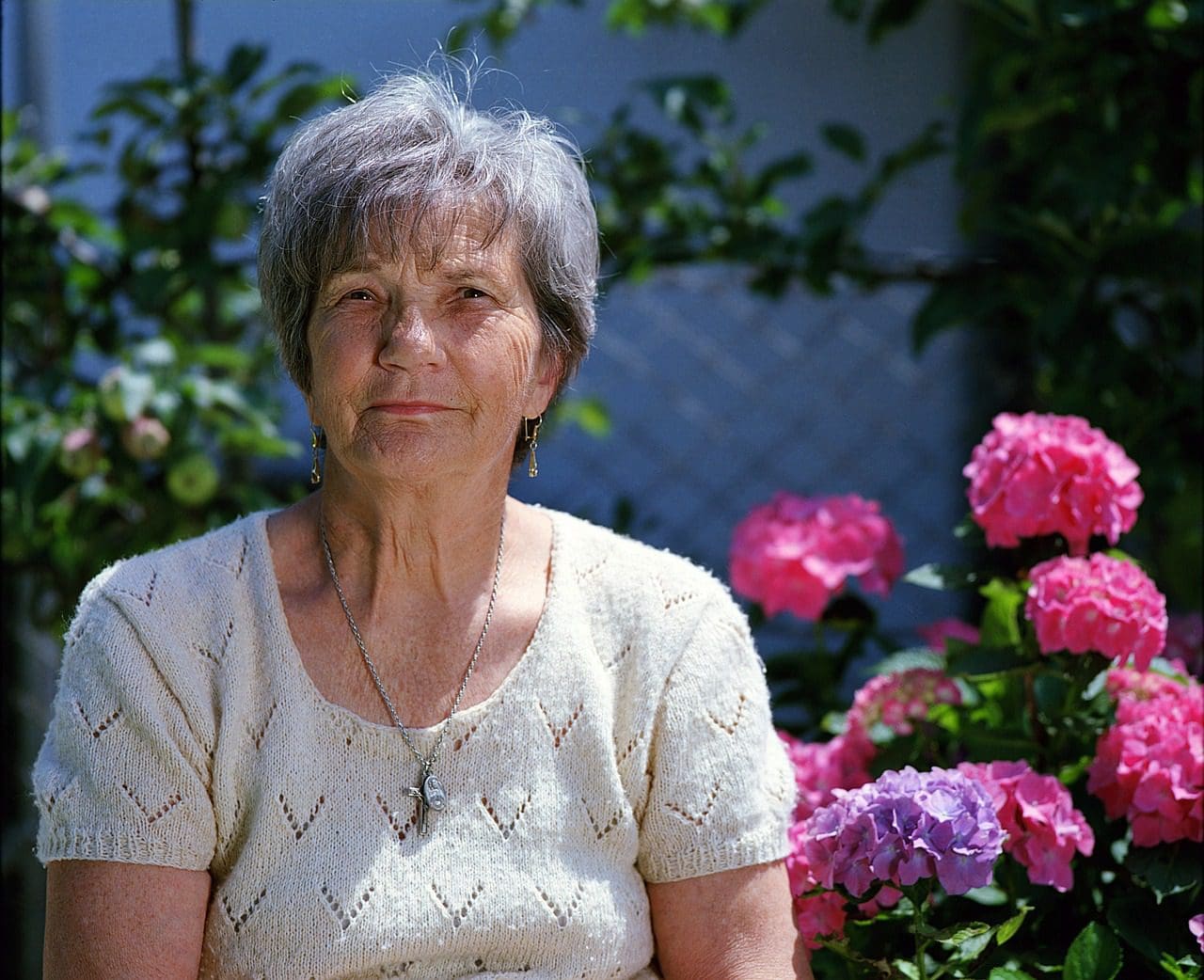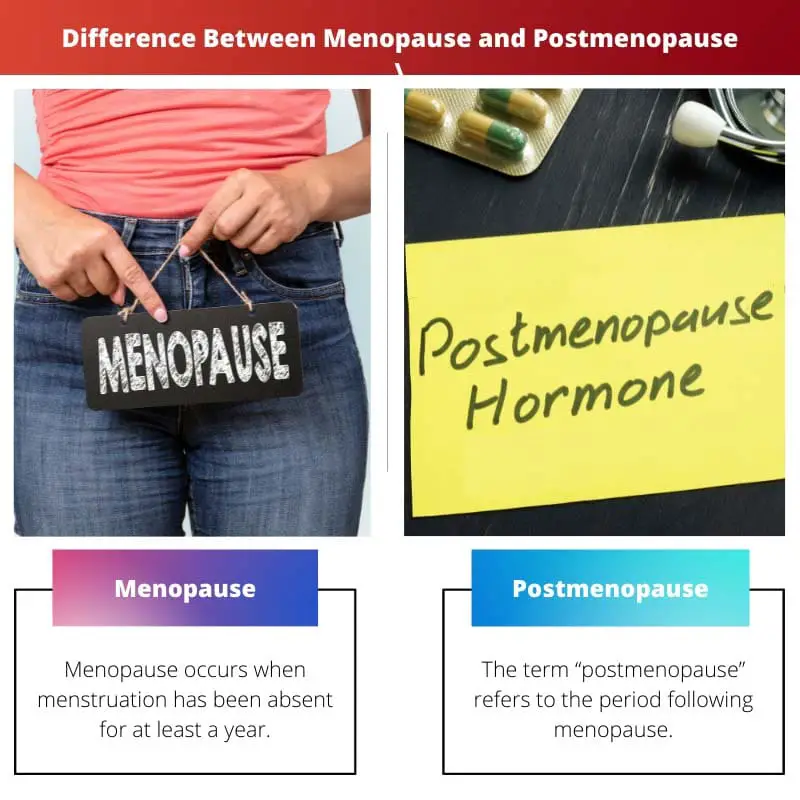Menopause and postmenopause are the stages of a woman’s life when she no longer has a monthly period. A woman’s reproductive years have come to an end.
Key Takeaways
- Menopause marks the end of a woman’s menstrual cycle, while postmenopause is the period after menopause.
- Menopause is characterized by irregular periods and fluctuating hormones, while postmenopause stabilizes hormonal levels.
- Postmenopausal women experience a lower risk of certain health issues but an increased risk of osteoporosis and heart disease.
Menopause vs Postmenopause
Menopause is a stage in a woman’s life that starts one year after her last period and is characterized by vaginal atrophy, insomnia, night sweats, and restlessness. Post-menopause is a time when the woman is over 55 but still experiences symptoms of menopause. Postmenopausal women are at risk of some health issues.

Menopause is the end of a woman’s menstrual period. Any of the variations you go through just before or after your period stops, signaling the end of your reproductive years, are referred to as menopause.
The term “post-menopause” refers to the ultimate stage of the menopause process, which signals the end of a woman’s reproductive years.
Comparison Table
| Parameters of Comparison | Menopause | Postmenopause |
|---|---|---|
| Definition | Menopause occurs when menstruation has been absent for at least a year. | The term “postmenopause” refers to the period following menopause. |
| Age | From about ages 45 up to 50. | About 55 and beyond. |
| Antral follicle count | Low | Extremely low |
| Uterus | Starts shrinking. | Becomes smaller in size. |
| Symptom | Vaginal dryness, hot flushes, and irritability. | Increase in vaginal atrophy, |
| Treatment | Hormone replacement therapy. | Medication like Fosamax to prevent osteoporosis. |
What is Menopause?
Menopause is the stage of a woman’s life when her menstrual cycle stops, and it is recognized as starting when one year has passed since her last period.
When the ovaries no longer produce high quantities of hormones, the conventional changes we think of as “menopause” occur. The reproductive glands that store eggs and release them into the fallopian tubes are known as the ovaries.
Changes in hormone levels cause a variety of symptoms, including insomnia, restlessness, night sweats, and vaginal atrophy.
To receive treatment, Hormone replacement treatment is a viable choice for some women, as it alleviates many of the symptoms of menopause.

What is Post Menopause?
The interval following menopause is known as postmenopause. It strikes those over the age of 55.
However, postmenopausal women are at a higher risk for a variety of health issues, including osteoporosis and heart disease, due to several reasons, including one with a lower level of estrogen.
A doctor can diagnose a woman’s post-menopause state based on the lack of menstruation for more than a year and the intensity of menopausal symptoms reducing.
In most cases, no treatment is required, though hormone replacement therapy may be required if symptoms such as hot flashes persist.

Main Differences Between Menopause and Post Menopause
- During menopause, the uterus begins to shrink, whereas by the time postmenopause occurs, the uterus is relatively tiny.
- Menopause can continue anywhere from seven to ten years, while postmenopause lasts the rest of a woman’s life.




